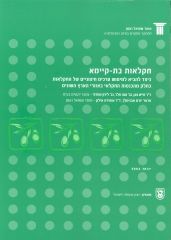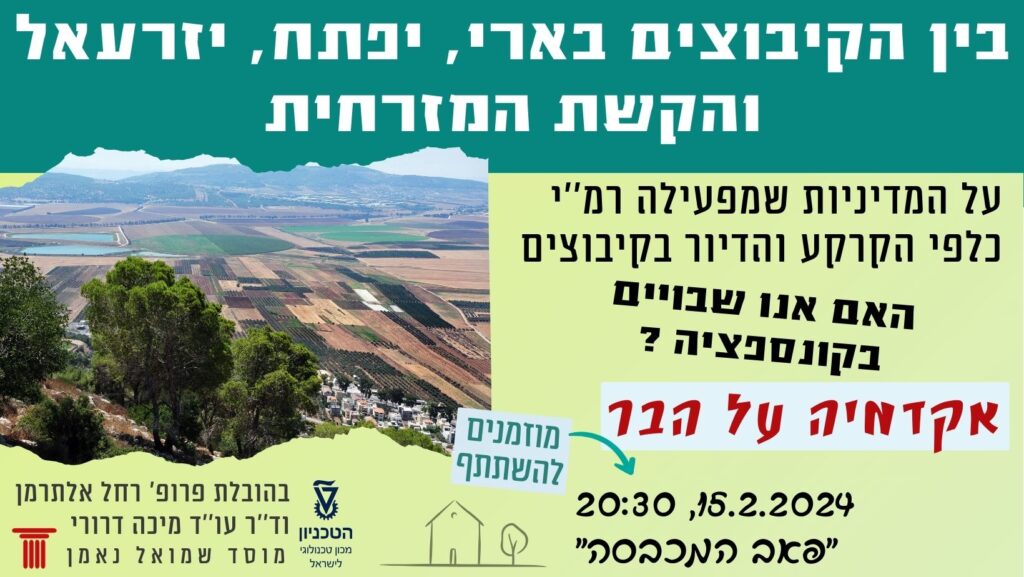Agriculture takes a relatively marginal place in Israel’s economy today. The future of agriculture demands public intervention, and care.
The need for sustaining agriculture is due to its external contribution, beyond its function in the production of food and fibers: aesthetical contributions in generating open green spaces; social contributions- values of the contact between Man and the land; ecological contributions – increased water infiltration, absorption of CO2, outlet of organic waste and recycled water.
On the other hand, agriculture has negative influences on the environment: soil and water pollution as result of excessive fertilization, disinfestations, and increase of soil erosion.
There is a need for creating a public system that will encourage the positive values of agriculture, together with reduction of its negative impacts. Governmental bodies, together with “green†organizations, which, until now, dealt mainly with natural areas, will be asked in the future to contribute to the protection of agriculture.
A system of supports of the external values of agriculture is common in various countries in the world. In order to adopt such strategy in Israel, there is a need to measure the economic value of the external influences of agriculture.
The research found that the total external value of agriculture is 260 million $US per year, the average external value of one hectare being $7.3. The external value of agriculture amounts to 8.4% of its production value. It may be assumed that around 20% of the agricultural land of Israel will realize its external value, in the total sum of 52 million $US per year.
The research presents a wide range of organizational tools, which may be used in the realization of payment to farmers. Realization of such tools may be the key to strengthening sustainable agriculture in Israel.












